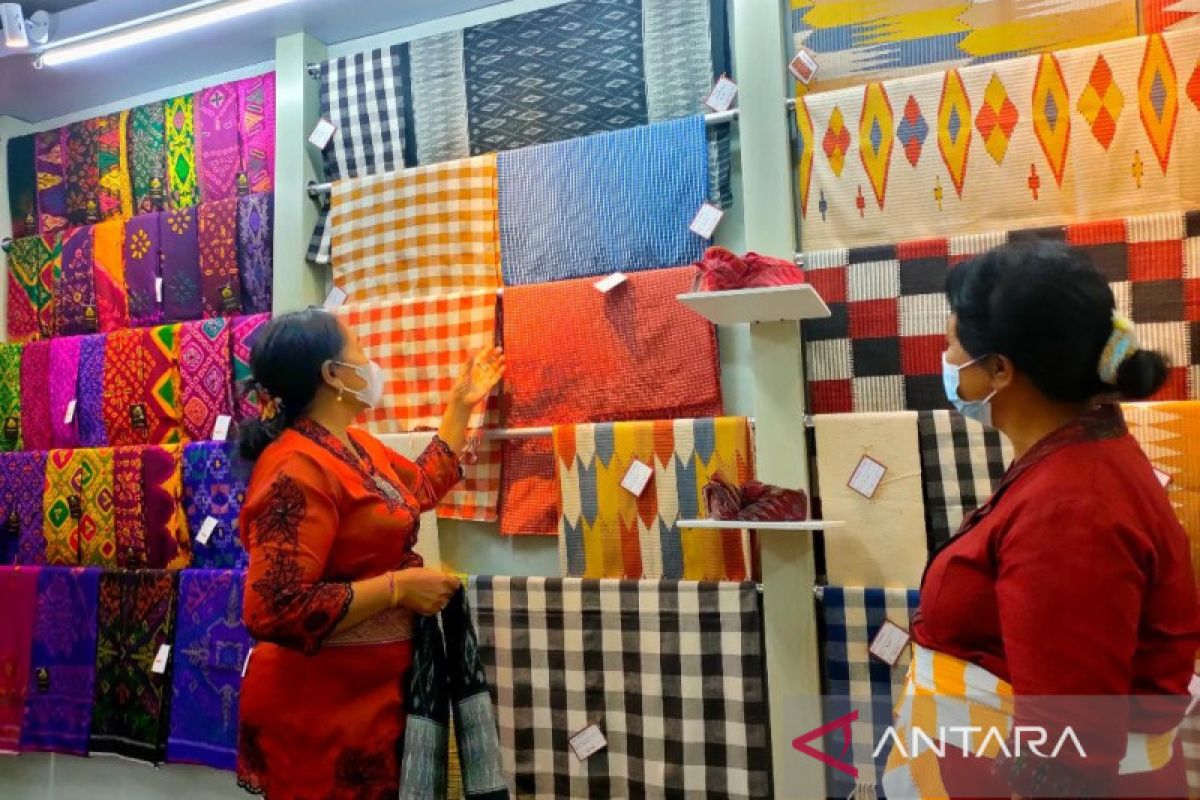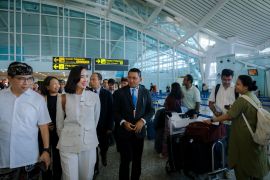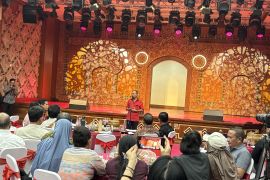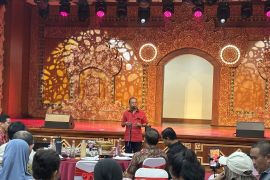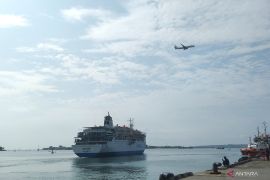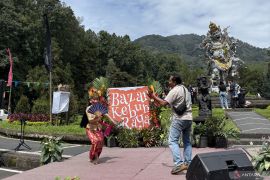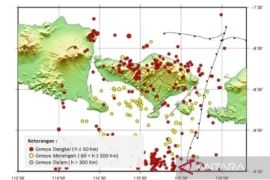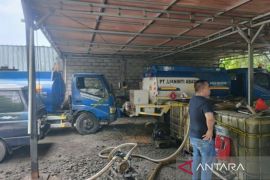Denpasar, Bali (ANTARA) - The COVID-19 pandemic provided a lesson to Bali on how the micro, small, and medium enterprise (MSME) sector is stronger compared to other sectors.
This was especially evident from the continued growth of MSMEs even as the tourism sector declined amid the coronavirus spread.
Bali, which had been relying on its tourism sector, recorded minus 12.26 percent economic growth in the third quarter of 2020 on the back of restrictions on public activities enforced by the government due to the pandemic.
With the help of several efforts made by the central government, regional governments, and other relevant stakeholders, Bali's economy has slowly recovered.
In the third quarter of 2022, the province's economic growth returned to a positive trajectory and was recorded at 8.09 percent.
Despite the pandemic challenges, Bali's MSMEs showed growth, according to head of the Cooperatives and Small and Medium Enterprises (SMEs) Office of Bali, I Wayan Eka Dina.
The number of MSMEs in Bali swelled by 6.4 percent from 412,265 in 2021 to 440,609 in 2022.
The majority of MSMEs in Bali are engaged in the trade sector at 254,655 units (58 percent); the agricultural industry, 87,966 units (20 percent); the non-agricultural industry, 61,048 units (14 percent); and varied services, 3,694 MSMEs (8 percent).
Though their number has increased, MSMEs are still facing several problems, for instance, in terms of capital, licensing, human resources, technology, marketing/promotion, and production.
In terms of capital, one of the problems has been MSMEs' lack of information on accessing capital for developing their businesses. Meanwhile, in terms of licensing, many micro-enterprise players do not have business legality.
The knowledge of MSME players also needs to be improved so that they can manage their businesses well.
Then, in the field of technology, the problem lies in the lack of technology utilization in business operations.
Next, in terms of marketing/promotion, the scope of MSME marketing is still small, and promotions are not yet optimal. Meanwhile, on the production side, the packaging of some MSME products is less attractive and some MSMEs are still facing problems with access to raw materials.
Representatives of Bali's MSME players acknowledged those obstacles during a meeting with Committee IV of the Regional Representatives Council (DPD), which made a working visit to Bali recently.
A local bakery entrepreneur, Vera, expressed the hope that there would be more dissemination of information regarding credit assistance, such as the people's business credit (KUR) program.
She also said that she needs assistance to make proper financial reports and training to create innovative products.
Similarly, a local cosmetics entrepreneur, Djani Ananta, expressed the hope that there would be sustainable coaching for MSMEs.
Meanwhile, Dwi, a coffee entrepreneur from Plaga, Badung district, sought assistance in market development because, so far, coffee products from Plaga have been less popular compared to those from Kintamani.
Strengthening MSMEs
Given the challenges that MSMEs are facing, the Bali provincial government has acknowledged the importance of making efforts to strengthen MSMEs.
The efforts include the integrated management of MSMEs through clusters and supporting supply chains through cooperatives.
The government is also procuring 40 percent of goods and services from SMEs.
It has also continued to facilitate training and assistance for MSMEs. Special allocation funds (DAK) have also been provided for the empowerment and development of MSMEs and cooperatives.
In addition, the government is enabling business incubation for MSMEs and carrying out monitoring and evaluation periodically.
This year, the Regional Handicrafts Council (Dekranasda) of Bali province will again hold "Bali's Small and Medium Industries Revive Exhibition," which has successfully supported the marketing of MSME products amid the pandemic in the past two years.
According to the Bali Dekranasda, the exhibition has been able to drive the economy and support craftspersons in the province.
On average, the transactions of craftspersons whose products are curated strictly have reached more than Rp1.8 billion.
The exhibition features various collections of Balinese endek woven fabrics and songket fabrics, clothes made with endek and songket fabrics, and traditional attire kebaya.
There are also collections of tie-dye batik fabrics, gold and silver jewelry, woven bamboo products, rattan products, artistic furniture, and other artisanal products.
Holding the exhibition is one of the methods adopted by Bali Dekranasda to control the quality of SME products.
Apart from the Bali government, the Bali Representative Office of Bank Indonesia (BI) is also making efforts to support MSMEs.
Deputy head of the Bali BI Representative Office, G.A. Diah Utari, stated that the development of MSMEs that BI assists is carried out by aligning them with BI's tasks. Thus, the development is focused on supporting inflation control efforts.
Then, BI is also encouraging MSMEs with export potential and those that support the tourism sector to back efforts to reduce the current account deficit and increase the empowerment of local economic potential.
BI has assisted MSMEs that are engaged in the field of food security, export-oriented MSMEs, as well as MSMEs engaged with flagship commodities, such as catfish, cashew nuts, brown sugar, and snacks for offerings.
In addition, the Bali Representative Office of BI is also holding the Bali Jagadhita Culture Week (BJCW) every year to help MSMEs to continue to operate and level up.
The BJCW also serves as an event to motivate MSMEs in Bali to tap their export potential, transform digitally, and make strategies to enter local and global markets.
To expand the MSME market, BI is also pushing the promotion of MSMEs via exhibitions.
Then, it is supporting MSMEs' access to financing through business matching for funding.
BI has continued to encourage the digital transformation of MSMEs to improve access to digital marketing through the digitalization of MSMEs, including the use of a digital payment system using the Quick Response Code Indonesian Standard (QRIS).
The non-cash payment system aims to make MSMEs' financial transactions more transparent and efficient.
With good financial records, MSME players will have easier access to financing to improve their capacity and quality.
Jamkrida as a solution
MSMEs that are facing problems in accessing capital, especially those who do not have collateral, can use the service offered by Bali government-owned credit insurance provider PT Jamkrida Bali Mandara.
The insurance products offered by PT Jamkrida include multipurpose loans, micro and small loans, construction of goods and services procurement, KUR, and so on.
Jamkrida is cooperating with several parties, such as 53 branch offices of Bali's BPD Bank, 238 cooperatives, 292 village credit institutions (LPD), and 41 village-owned enterprises (BUMDes).
It is also cooperating with revolving fund management institutions, regional companies, venture capital companies, insurance companies, and several insurer agents.
President director of PT Jamkrida Bali Mandara, I Ketut Widiana Karya, said that Jamkrida shares are owned by the Bali provincial government and nine district/city governments in the province.
The total capital provided by the provincial government and district/city governments as of 2022 has reached Rp148.72 billion.
The establishment of PT Jamkrida Bali Mandara in 2011 was aimed at supporting the community elements, especially MSMEs, that are facing problems obtaining capital but are not bankable.
As a regional-owned enterprise, Jamkrida does not only provide support in terms of credit insurance but also MSME management.
With the efforts and programs that have been readied and run, Bali is optimistic about driving its MSMEs to not only recover faster from the pandemic but also face the challenge of recession in 2023.
Still, the synergy and collaboration of various parties is a prerequisite and key for the strengthening of Bali's MSMEs.


